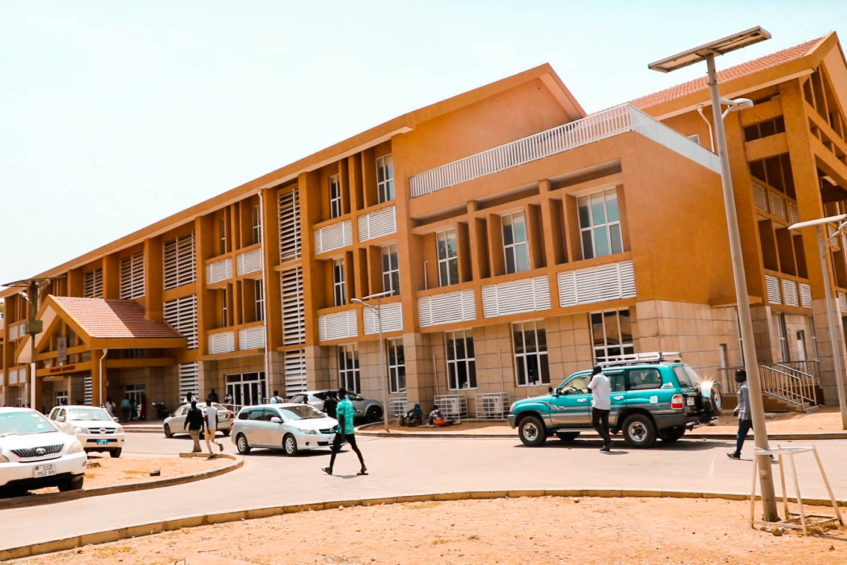
The new complex of South Sudan's main referral hospital /Lou Nelson/Eye Radio
The Medical Director at Juba Teaching Hospital has said the hospital is facing acute shortage of water, and inadequate power supply.
Dr. Lucky Gloria Ambrose, says sometimes they are forced to refer critically ill patients to private facilities.
This, he says, should not be the case.
Last year, the South Sudan Urban Water Corporation threatened to cut water supply to Juba Teaching Hospital over unpaid arrears.
The same year, doctors at the main referral hospital were often forced to use phone lights and torches to conduct life-saving surgeries following an unexpected power blackout.
But due to the recurring challenges, Dr Gloria says they are at times left with no option rather than referring patients to private facilities.
Water and electricity cut combined according to Dr. Gloria, are some of the main challenges facing the main referral hospital.
This, she says, even makes it difficult to track patients referred to the private facilities as to whether they are getting assisted or not.
“The private facility within Juba town are supposed to refer patient to us, we are not supposed to refer to private hospital but sometime challenges make us do so,” Gloria said.
“When we don’t have electricity or water we refer, then there will be a breakdown in communication whereby you will not be able to follow whether the patients you referred were assisted, is the person alive or death the report don’t come back to us and that is why we look at it as a challenge.”
The Juba Teaching Hospital is the only national referral hospital in South Sudan, a country with an estimated population of more than ten million.
In February last year, the Director-General of Juba Teaching Hospital said South Sudan’s main referral hospital relies heavily on non-governmental organizations for medical supplies.
According to Dr. Isaac Cleto Rial, the practice was because the annual allocation to the hospital was very low.
Observers said the health sector was still underfunded in the country.
They note that public servants including medical doctors quit the profession due to low pay.
But in the 2021-2022 fiscal year budget the Government of South Sudan has increased the health sector budget allocation from 1.9% to 9.6%.
Support Eye Radio, the first independent radio broadcaster of news, information & entertainment in South Sudan.
Make a monthly or a one off contribution.
Copyright 2024. All rights reserved. Eye Radio is a product of Eye Media Limited.